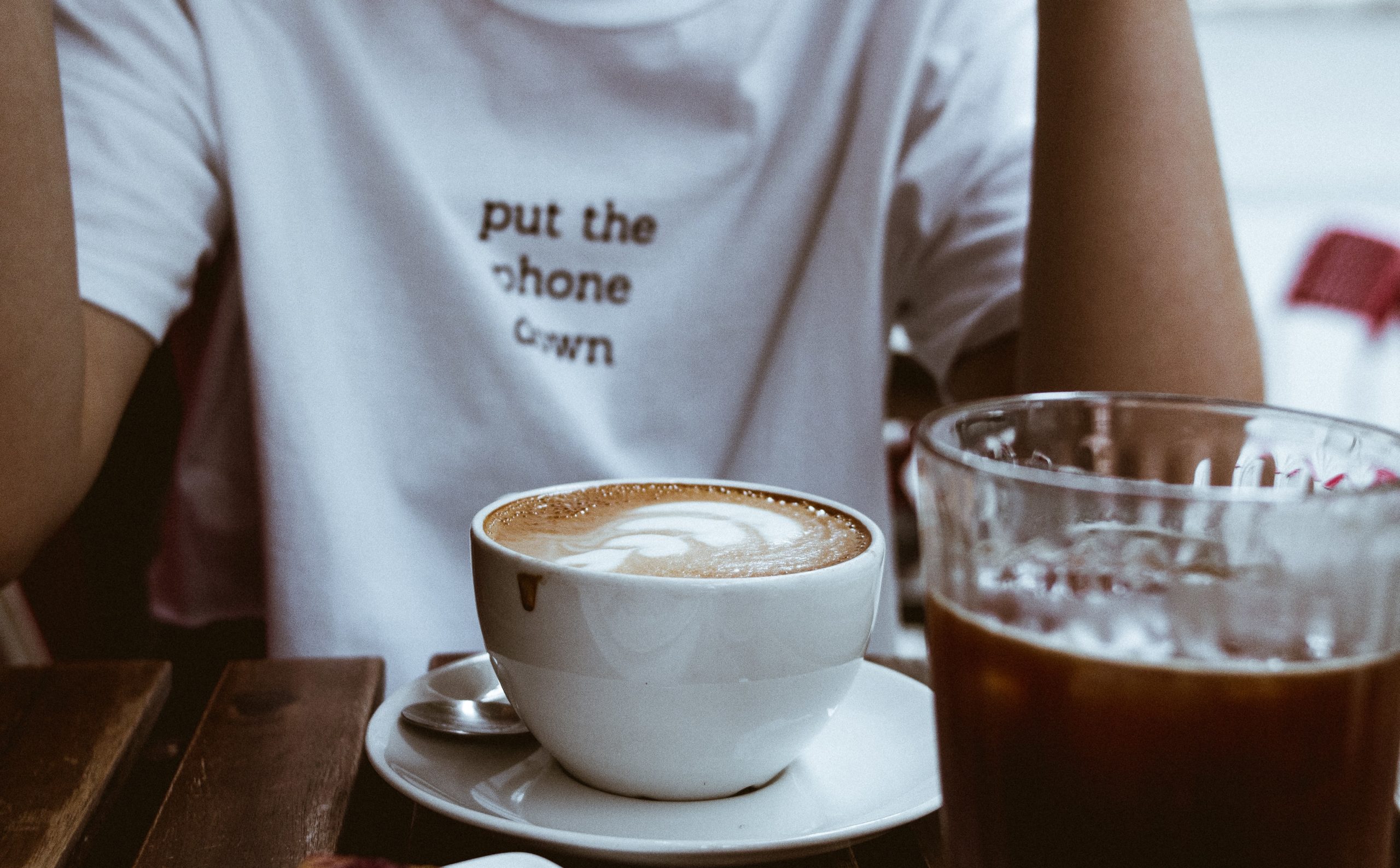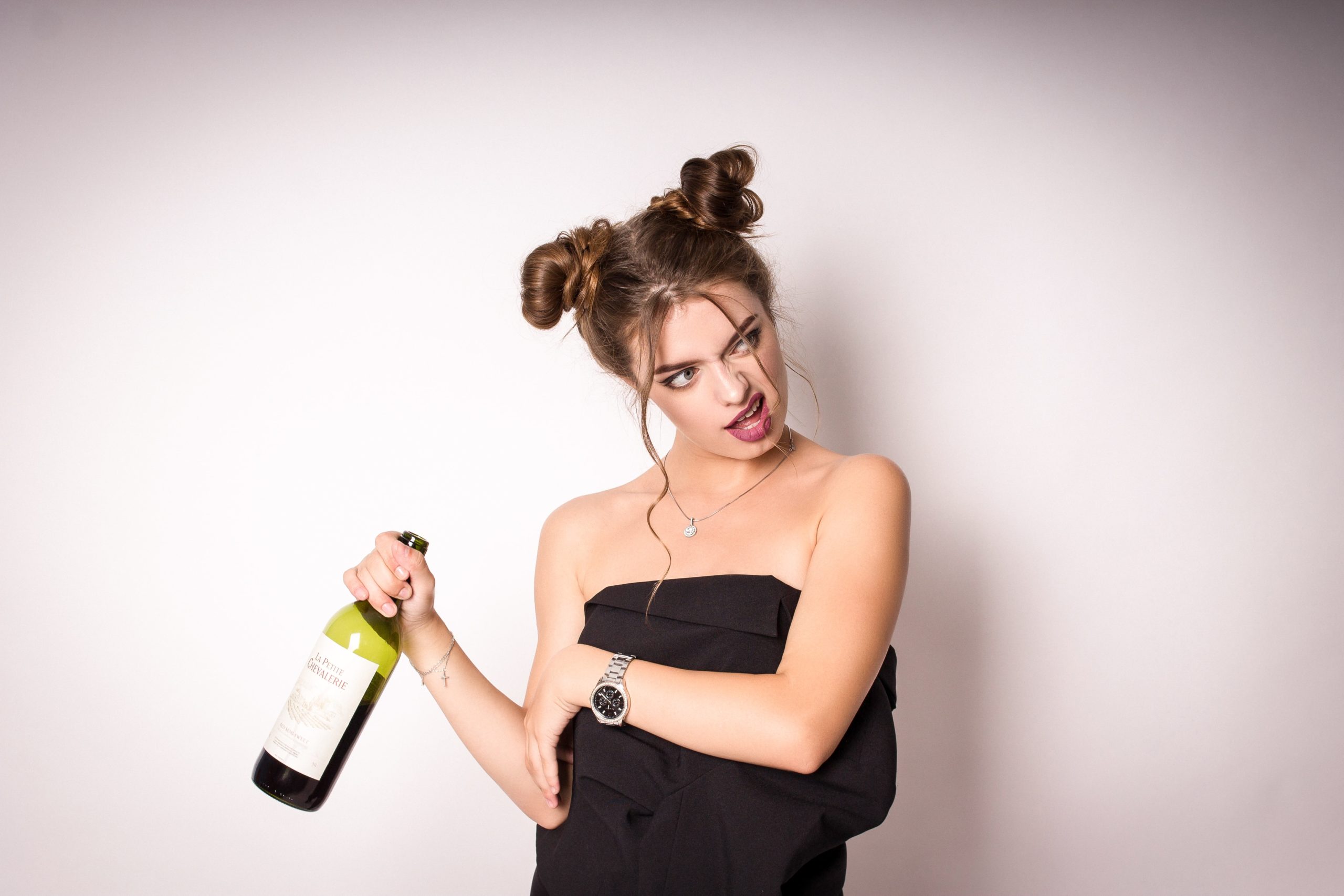Wondering if coffee and alcohol can be mixed? You've come to the right place.
We will tell you what effect a mix of caffeine and alcohol has on your body and also whether caffeine cancels out the effects of alcohol.
Let's take a look.
How Does Mixing Alcohol and Caffeine Affect You?

Robert Swift, M.D. and Ph.D., of Brown University’s Center for Alcohol & Addiction Studies, has a very clear explanation of the effects of mixing alcohol and caffeine.
Alcoholic beverages increase levels of the neurotransmitter dopamine. This is a hormone that induces feelings of pleasure.
Dopamine activates cyclic AMP (adenosine monophosphate). This chemical activates the brain, making you more energetic and talkative.
Until a certain point, cyclic AMP is controlled by special enzymes in the body. This prevents overloading of the brain.
But then another neurotransmitter, adenosine, comes into play.
It slows down processes in the brain; you begin to feel tired and disoriented. Reactions become slower; coordination and reasoning are lost.
But if you drink a cup of coffee with alcohol, caffeine blocks the action of the enzymes that control cyclic AMP.
Thus, the pleasurable effect caused by alcohol will be enhanced.
You'll feel refreshed and sober, but you'll still be drunk.
And it's worth knowing that this combination will prevent you from getting a good night's sleep.
Caffeine stays in the body for about six hours and its stimulating effect can affect sleep.
As a result, there is a high risk of waking up with an even bigger hangover than usual.
Also, caffeine enhances the dehydrating effect of alcohol.
Is It Bad to Mix Alcohol and Caffeine?
Sergi Ferré and Mary Claire O'Brien, authors of a large peer-reviewed study on the effects of alcohol and caffeine on the human body, call the mix the perfect storm.
After drinking alcohol and caffeine, you feel sober and ready to have fun, but your body is not having fun.
Such a cocktail has opposite effects on your body at the same time:
1
Caffeine stimulates the central nervous system
2
Alcohol suppresses the central nervous system
On top of that, you become more likely to engage in risky behavior.
Of course, the effects of caffeine and alcohol on the body depend on their dosages.
The researchers focused primarily on alcohol and energy drinks. These pose the greatest danger.
Energy drinks or caffeinated alcoholic beverages are popular among young people and are readily available, and their caffeine content is off the charts: up to 250 mg per 250 ml.
A cup of black coffee of the same size contains around 100 mg of caffeine, depending on the coffee beans and the method of brewing.
Mixing alcohol with energy drinks makes a person insensitive to the effects of alcohol.
Also, mixing alcohol with energy drinks increases mental stress and provokes uncontrollable behavior, ranging from excessive arousal to apathy and extreme weakness.
Alcohol mixed with energy drinks activates the cardiovascular system. And if the energy drink includes guarana, the load increases by 2-3 times.
Are Caffeine and Alcohol Bad For Your Heart?
The combined or alternating use of caffeine and alcohol increases their mutual effect on the cardiovascular system.
The consequences include:
1
Quickening pulse
2
Rising blood pressure
3
Increasing load on the heart
As a result, uncontrolled arrhythmia or tachycardia may occur, and fragile vessel walls may be destroyed.
This must be taken into account by people with heart disease, atherosclerosis, or a tendency toward either when choosing whether to drink coffee and alcohol.
How Do Caffeine and Alcohol Affect the Nervous System?
Alcoholic beverages enhance the stimulating effect of caffeine on the nervous system.
The result is nervousness, anxiety, disorientation, insomnia, and headache.
Does Coffee Cancel Out the Effects of Alcohol?

It is a misconception that coffee neutralizes the effects of alcohol. Caffeine does not reverse the effects of alcohol, it only masks them.
Excitation of the nervous system suppresses some of the symptoms of intoxication and creates for a short time the illusion of sobriety.
You won't feel like you're drunk, and this could lead to drinking more alcohol than usual.
According to various studies, people who consume alcoholic beverages with caffeine often engage in riskier behavior than those who simply drink alcohol.
Does Coffee Help You Sober Up?
Caffeine stimulates the nervous system, awakens the brain, and also has a diuretic effect.
It seems like the perfect remedy to cleanse the body of toxins and restore energy the morning after a party.
But it's not that simple.
Drinking coffee to sober up is pointless.
Caffeine does not affect the breakdown of alcohol in the liver and does not decrease alcohol content in the blood.
And it puts a heavy strain on the heart, which is already overworked from a hangover.
The nervous system is also too tired to be forced to work like this.
So you should drink coffee only after your body returns to normal.
Alternatively, you can replace coffee with tea.
Tea contains quite a lot of caffeine, but it also contains tannins, so its effects on the heart and brain will be less severe.
Conclusion
Some people add small amounts of strong alcohol to coffee drinks for an interesting taste experience. Irish coffee is a good example. And there is nothing wrong with that.
But drinking a lot of alcohol with coffee or energy drinks is not the most beneficial activity for your health.
In any case, you should be very careful when mixing alcohol and caffeine.
